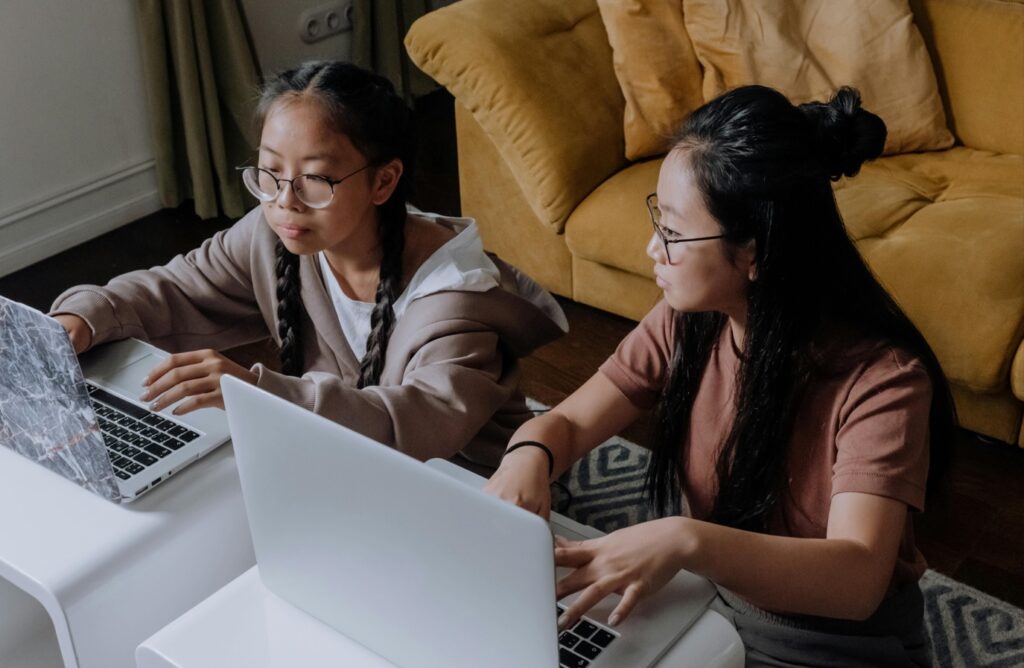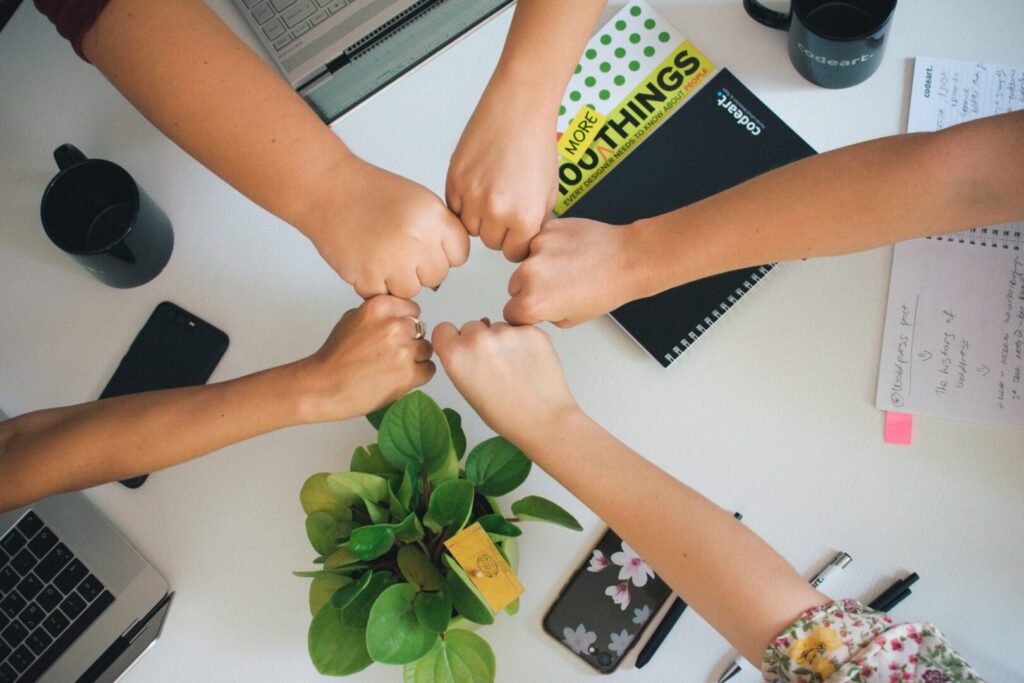Navigating neurodiversity with courage and a dash of fun
In a world where the beat of life often follows a conventional rhythm, Han* adds her own unique melody to the mix. Meet Han, a spirited individual who graciously invites us into her world, sharing the highs, lows, and loop-de-loops of life with ADHD.
Navigating the twisty-turny pathways of ADHD isn’t always a smooth ride. From dodging distractions to juggling multiple tasks, Han brings a refreshing honesty to the table. Her journey is a rollercoaster of challenges and triumphs, punctuated by moments of sheer brilliance and spontaneous fun.
Through her candid tales and witty insights, Han paints a vivid picture of life with ADHD. From the hilarious mishaps to the heartfelt victories, every twist and turn is a reminder of the resilience and creativity that thrives within the neurodivergent community.
So buckle up and join us on this wild ride as we dive into Han’s ADHD Adventure. Together, we’ll laugh, learn, and celebrate the quirks that make us beautifully unique. Get ready for a journey filled with courage, camaraderie, and a whole lot of food for thought!
1Twenty80: Can you please introduce yourself and share a bit about your neurodivergent identity?
HAN: Hi, my name is Han and I’m in my twenties. I’m also a corporate superstar and I’ve been diagnosed with Attention Deficit Hyperactivity Disorder (ADHD).
1Twenty80 Can you share a quirky or unexpected talent that you believe stems from your neurodiversity?
HAN: Honestly, I wouldn’t describe it as a talent per se, but I do have a knack for writing and speaking. It’s almost as if I’ve absorbed the experiences and wisdom of an 80-year-old woman. How does that happen, you ask? Well, it all ties back to my innate tendency to please others. This tendency, in turn, has made me highly empathetic. You see, it’s like a chain reaction. My people-pleasing nature fosters empathy, which often leads me to wear a mask around others, adapting my actions and words to fit what I assume they expect of me.
In corporate environments, this tendency exacerbates my imposter syndrome. Take, for instance, a company dinner with my bosses. I find myself mirroring their expectations, seamlessly blending in. Then there’s the dynamic with my parents — who are both very career-focused — I find myself outlining my plans and nodding along to their career-centric advice, even discussing marriage as they see fit. However, with my younger sister, I strive to be more of a friend than an authoritative figure. Our six-year age gap prompts me to want to be her confidant, offering support and guidance that I lacked in my youth.

But therein lies the paradox. This tendency towards independence, borne out of being the eldest, often leads me to tackle challenges alone, even when I could use support. It’s a delicate balance, a sort of sister syndrome, where I’m both fiercely independent yet longing for connection. So, you see, it’s a double-edged sword—a talent that can also bring its own set of challenges. And yes, it does bite back at times. When I dare to show vulnerability, those around me question its authenticity, doubting whether it truly reflects who I am.
1Twenty80: If your neurodivergent traits were superhero abilities, which ones would you choose, and how do they empower you?
HAN: I resonate deeply with Wanda Maximoff. Her journey reflects aspects of my own experience, as the more pain she endures, the stronger she becomes. It’s remarkable how she empowers me amidst the challenges of ADHD, navigating the demands of a 9 to 5 job, and confronting social complexities. I won’t deny that it brings me down at times; I do cry. Yet, with each tear shed, I find the strength to face the day anew. It’s through adversity that we discover our resilience, much like Wanda.
Recognising this truth became pivotal when I first learned of my ADHD diagnosis. Initially, I lamented over what could have been — a string of missed opportunities. But dwelling on the past offers no solace; it’s immutable. As cliché as it may sound, I stumbled upon a Facebook post that claimed life truly begins after you’re 30. With genuine anticipation, I can’t wait for my 30s. I believe I will bloom.
With genuine anticipation, I can’t wait for my 30s. I believe I will bloom.
1Twenty80: What challenges have you faced due to your neurodivergent condition, and how have you overcome them?
HAN: I always, always, always struggle with studying, in the sense that if I don’t like a subject, I will fail at it. But when I love a subject, I will pass with flying colours—100, A+, 5 stars, whatever you call it. So with that challenge, I have to force myself to like some subjects. Here’s how my inner monologue will look – “For this first week, just focus on this particular accounting subject that you hate”. Huddle up until you want to vomit. And at the same time, it works when I give myself rewards, “If you score well on this test, you deserve that expensive ice cream.”

The second challenge is daily tasks, especially house chores. Because I’m the eldest, from age 4 to 18, I was privileged enough to have a maid at home. Both my parents were working, and my sister and I were too young to take care of the house and live alone, so we had a maid. After I moved to a new place with my family, I had trouble adapting to doing my own laundry, cleaning my room, and helping my parents pick up after the house. And let’s be honest, nothing is fun when it comes to chores. I hated myself, I hated my parents for forcing me to do it, but then at one point, something just clicked, and I guess it’s the frontal lobe fully developing at 25 years old. Imagine being 25 and only then accepting that yes, you have to do chores. So in that area, what helps me is that the moment the executive dysfunction disappears, that’s when I clean everything. And I mean everything. There was once, in one day, I managed to vacuum and mop both floors of my house, a two-story house. I managed to do three rounds of laundry, and by laundry, I mean putting it in the machine, putting the clothes out to dry, folding, keeping it, and washing the porch outside. That is the proudest moment of my life, so I guess it’s very contradictory. I struggle with symptoms like having trouble completing tasks, planning, and organizing, which is known as executive dysfunction. However, when that symptom dissipates, I find myself able to accomplish everything in a single day. Instead of criticizing myself, I choose to recognize and address it. So, today, I thought, “Okay, I have one small basket of laundry, everything is mine.” I considered doing it now, but then I thought, “Ah, enduring the heat outside? Later lah.” So, later it is. I don’t beat myself up about it anymore, like I used to.

When I was told to take responsibility and choose the course that I wanted, I didn’t know what I wanted. But I know I can talk. I know I love English. I know I enjoy being around people, and I don’t have a hobby. But I do enjoy K-pop, that’s for sure. I enjoy music, drama, watching videos, whatever it is. I enjoy things that stimulate my system. None of the studying does that for me, regardless of the course.
Someone from my past introduced me to the gym, and I didn’t know that the reason I loved the gym so much is that after you work out, your dopamine production increases tenfold. So that’s why I felt so depressed after the doctor told me to immediately stop going to the gym because of rheumatoid arthritis. For some, quitting smoking brings sadness. As for me, I had to bid farewell to the gym. Why does life toss these challenges at me? First, ADHD, then rheumatism. I tried to manage, and well, that’s how it went. It took nearly a year to fully grasp and accept it all. I came to terms with it, acknowledging these tough days. So, I devised a plan: lighter weights and a swim. Swimming has helped during the toughest times. And I love it. I earned my swimming certification at 15, relishing the pursuit of knowledge in various areas. High school was a flunk—science, then business studies. College wasn’t much different; barely scraped through International Business. Then, unexpectedly, I found myself in the tech industry. I could teach people swimming, handle chores, even cut and color hair. My abilities surprise even me. When I find something, I dive in headfirst. Eventually, it loses its allure. My mum’s exasperated, wondering why I go all in. Yet, some things lose their magic. They no longer hold my interest.
1Twenty80: Are there specific strategies or accommodations that have been particularly helpful for you in navigating challenges?
HAN: I wouldn’t really call them strategies, but for those who have been diagnosed, never skip your medication. Seriously, never skip it because, number one, you pay for it with real money. So, make sure you take it every single day without fail. Another point is, as cringy as it sounds, try to find which self-help advice suits you best. In that sense, what may be very motivational for others may not work for me. What helps is remembering this quote I came across in 2020 when we were all at home: If something is worth doing, it’s worth doing it halfway. The reason it resonates with me and why I still use it is because, for example, on Mondays, I tell myself, “Just get under the shower, even if it’s halfway and disgusting. Just let the water run over you and try to move a bit, right?”.
And let’s say you had a long day of work outside, you met people, you walked around, and then when you get home, you just want to sleep but you have your makeup on. And then, you know, society, especially with social media right now, people will say, “You must remove your makeup.” So instead of doing all those steps, just take a cleansing wipe, clean, and go to sleep. That’s the strategy I follow. It’s not always like I have something motivational to tell people, I don’t have anything like “you gotta push yourself to wake up at five in the morning.” That’s too idealistic. I don’t believe anybody does it. Realistically, a lot of us, we cannot have that when we are also tied to the 9 to 5 working hours. So instead, let’s say you have a meeting at 10, okay, wake up at 9 or 9.30 just so you have time to feed your cats, brush your teeth, wash your face, and get ready for the meeting. You don’t even have to change out of your pajamas if that helps you show up. So that is my strategy.

1Twenty80: Could you share a workplace anecdote where your neurodivergent strengths shone like the brightest fireworks?
HAN: Whenever I attend a job interview, they always seem impressed with me because I have a knack for talking nonsense. It’s like my ADHD mind has mastered the art of talking, and people almost always fall for it. That could’ve been my superpower, being a smooth talker.
During my time at this company, spanning about 1.5 years now, there are moments when I feel lost and uncertain about my purpose here. However, these feelings are something only I experience. Yet, it was my performance during the interview that secured my position. It’s all about persevering, you know? Nothing seems entirely genuine. ‘Pushing through’ — that should be on a T-shirt, don’t you agree?
I’m also quick thinking. It brings back memories of presenting in university group projects. You know how it goes – taking turns presenting and then facing questions from the lecturer or fellow students. There were times when I had no clue how to answer. So, what did I do? I improvised, dodged, and redirected like a pro. It’s all about mastering the art of talking and redirection, a dynamic duo indeed. Sure, seasoned lecturers might see through it, but most people fall for it hook, line, and sinker. It’s all about understanding the thought process behind the question.
1Twenty80: How can employers and colleagues create a more inclusive and supportive environment for neurodivergent individuals in the workplace?
HAN: For me, exposure is paramount. It’s all about helping the entire ecosystem understand, from the highest echelons to the most humble positions, even the janitor. It’s about ensuring everyone comprehends where you’re coming from, and that being neurodivergent doesn’t diminish your worth.
You know what’s interesting? Some individuals actually thrive as neurodivergents. Take Hank Green, for example – John Green’s brother – he’s open about having ADHD and excels despite it. The key is breaking stereotypes.
Before implementing support groups or other initiatives, it’s crucial for companies, especially large corporations to embrace mental health days. However, convincing higher-ups about the necessity of these days is the first step. The 9-to-5 work model was designed by men during the industrial era, which doesn’t necessarily accommodate women. It’s time to challenge and reshape this framework to allow everyone, especially women, to thrive creatively and professionally.
1Twenty80: What common misconceptions or stereotypes about neurodivergent individuals would you like to dispel and hopes for the future?
HAN: Perhaps one of the most pervasive misconceptions I’d like to address is the notion that neurodivergent individuals are lazy. Let’s put an end to this stereotype once and for all. It’s crucial to understand that individuals with neurodiversity may face challenges that affect their motivation, but it’s not rooted in laziness. This misconception only perpetuates stigma and hinders progress toward acceptance and understanding.
As for my hopes and aspirations for the future regarding the acceptance and understanding of neurodiversity, I want to focus on Malaysia. It’s heartening to see a growing trend among young parents who are seeking diagnosis and support for their children, especially those who are autistic. This shift in mindset is a positive step forward.
Another important aspect is the acceptance of adults who are neurodivergent. Historically, ADHD research has primarily focused on young boys, leading to misconceptions about the condition’s prevalence among girls and women. It’s time to acknowledge that neurodiversity knows no gender and that women can indeed be affected by ADHD and other neurodivergent traits.
However, fostering acceptance in Malaysia, and indeed across Asia, comes with its own set of challenges. Mental health stigma runs deep in our societies, where expressions of vulnerability are often misconstrued as weakness. We’ve grown up in environments where toughness is prized above all else, making it difficult to address issues like ADHD openly. Navigating these cultural and societal norms requires patience and understanding, especially when it comes to engaging our parents and older generations. The concept of mental health is still a taboo topic for many, let alone understanding neurodivergent conditions like ADHD. It’s a journey that requires empathy, education, and perhaps even cultural reevaluation.
In light of these complexities, I believe that sharing our stories and experiences, perhaps through writing a book as suggested, can be a powerful tool for sparking conversations and fostering greater understanding. By challenging ingrained beliefs and promoting empathy, we can pave the way for a more inclusive and accepting society for all neurodivergent individuals.

In the grand adventure of life, Han’s ADHD journey stands out like a firework against the night sky, bursting with raw courage and unfiltered spirit. One truth shines brighter than the rest: the urgent call to embrace openness and kindness toward neurodivergent souls. Through the twists and turns, Han’s tale hits home like a lightning bolt, sparking truths that resonate deep within. Her story, painted with honest strokes and vivid colors, lights up the path for those trekking similar trails. By embracing her neurodiversity, Han flips the script on normalcy, daring us to rewrite the rules and dance to our own beat. She’s like a shining beacon in a sea of sameness, guiding us to embrace the wild, wonderful messiness of being human.
Curious to delve deeper into Han’s captivating journey? Subscribe to our 1Twenty80 e-magazine for an exclusive read, free of charge (until further notice).
Disclaimer: *Name has been changed to protect the individual’s privacy.
Author’s Note:
This interview article is carefully crafted to foster empathy and provide a supportive platform for individuals within the neurodiverse community. It’s essential to emphasize that this article does not serve as a tool for self-diagnosis. If you suspect you may have a neurodiverse condition, seeking guidance from a professional is encouraged to ensure comprehensive understanding and support.














